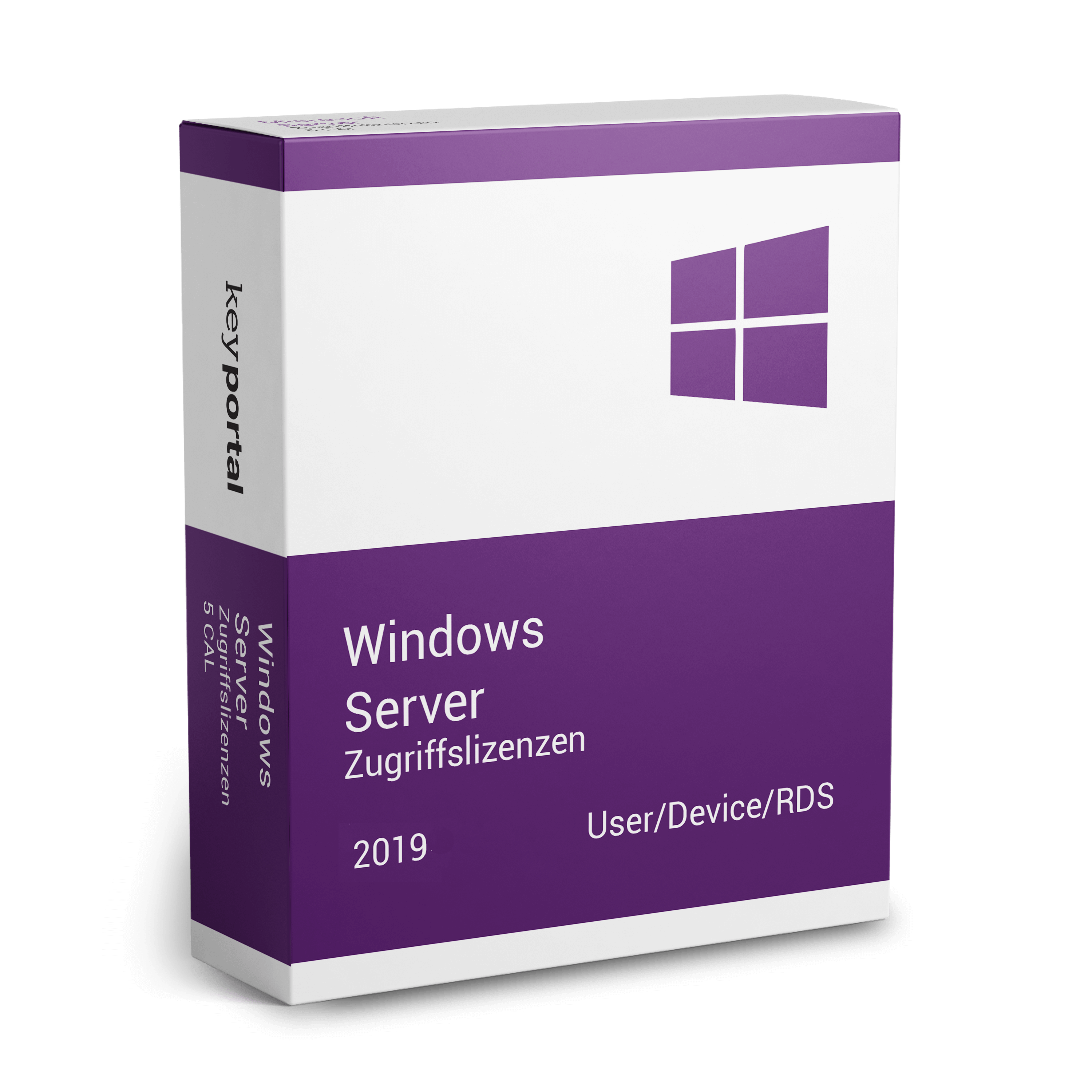Description
Why Windows Server 2019 Access Licences (CALs)?
When you buy a version of Windows Server 2019, you get a server licence that entitles you to install and use the said server operating system on your device. To connect it to other devices, you need so-called Windows Server Device CALs (Client Access Licenses). These are device licences that entitle you to access the server and all data on it from licensed devices.
Verify individual devices with Windows Device CAL
With device licences you can easily determine in your company which devices get access to the server. Individual licensing allows you to connect as many devices as you need. With this package you get 5 Windows Server Device CALs, which you can use on any device. Unlike User CALs, which are bound to a specific user and can be used independently of a device, Device CALs are always bound to the respective device.
Optimal joint use of resources
Device CALs are particularly suitable for companies in which several employees work on one device. With Windows Server Device CALs, you do not have to purchase access per employee, but only per device. Whether this form of licensing is suitable for you depends on the structure of your company. By choosing the right CALs, you can work cost-efficiently and save resources. Device CALs and User CALs can also be combined. However, you cannot split them. A CAL is always bound to its respective purpose.
For example, use Windows Server Device CALs for Windows Server Standard or Windows Server Datacenter.
Each server user needs its own Windows User CAL
Windows Server User CALs (Client Access Licenses) allow you to network individual users with a Windows Server operating system. In order to make your Windows Server operating system available to as many users as possible, you need corresponding Microsoft Windows Server User CALs. A separate access licence must be verified for each user who is to be connected to the server system. Afterwards, the user has full access to all contents and services of the server system that are released for him by the administrator.
Easy access through individual access data
In contrast to Device CALs, also called device licences, User CALs for Windows Server are always bound to a specific user. This user receives individual access data to the server and can use these at any workstation. User CALs are not bound to a specific device. They are therefore particularly suitable if your employees use several devices, for example a desktop PC and a laptop. Each user has full access to the server from any device via their Microsoft Windows Server User CAL. The user licences make working so much more flexible and allow easy and quick access to relevant data.
Network all employees with the server in an uncomplicated way
How many Microsoft Windows Server User CALs you need to buy depends on how many employees need server access. This package includes 5 User CALs. This allows exactly 5 users to access the server. You can extend your Windows Server User CALs as much as you like to give all your employees access to the server. Adapt the required amount of CALs exactly to your needs and work cost-efficiently and resource-saving. Note: User CALs and Device CALs can be combined, but not split. They are always bound to their respective purpose. A Windows User CAL can be used for Windows Server Standard and Windows Server Datacenter.
Product Information “Windows Server – 5 RDS CALs
The Microsoft Windows Remote Desktop Services (RDS) are the successor of the old Terminal Server CALs. The RDS is a centralised desktop and application platform that offers you a wide range of options for delivering and managing desktops and connecting remote workers with session virtualisation and Virtual Desktop Infrastructure (VDI) technologies. This allows you to increase flexibility and data security in your organisation with a centralised desktop solution, while freeing up your IT department to manage desktops and applications.
Functions of Remote Desktop Services (RDS)
- Simplified administration through a unified and scalable connection broker for both session desktops and VDI desktops.
- Unification of RD Web Access and “RemoteApp and Desktop Connection” functionality for access to VDI and session desktops.
- With RemoteApp authorisation and filtering, users can only see the applications intended for them.
- Rich remote user experience that approximates what users are used to when accessing local resources.
- Full multi-monitor support
- Windows Media Player redirection
- Audio feed and audio recording
- Increased bitmap acceleration for 3D applications and rich media content such as Silverlight and Flash.
- Improved application compatibility and management of remote desktop session host servers including App-V for RDS.
- Comparison with Terminal Server CALs
The Remote Desktop Services are equivalent to the Terminal Server CALs in terms of functionality. In contrast to the Terminal Server CALs, the Remote Desktop Services already include the usage rights for Microsoft Application Virtualization for Terminal Services (App-V).
Licensing
RDS must be licensed for each device that accesses a terminal server. Like other CALs from Microsoft, the RDS are for a named user (User CAL) or a device (Device CAL).




